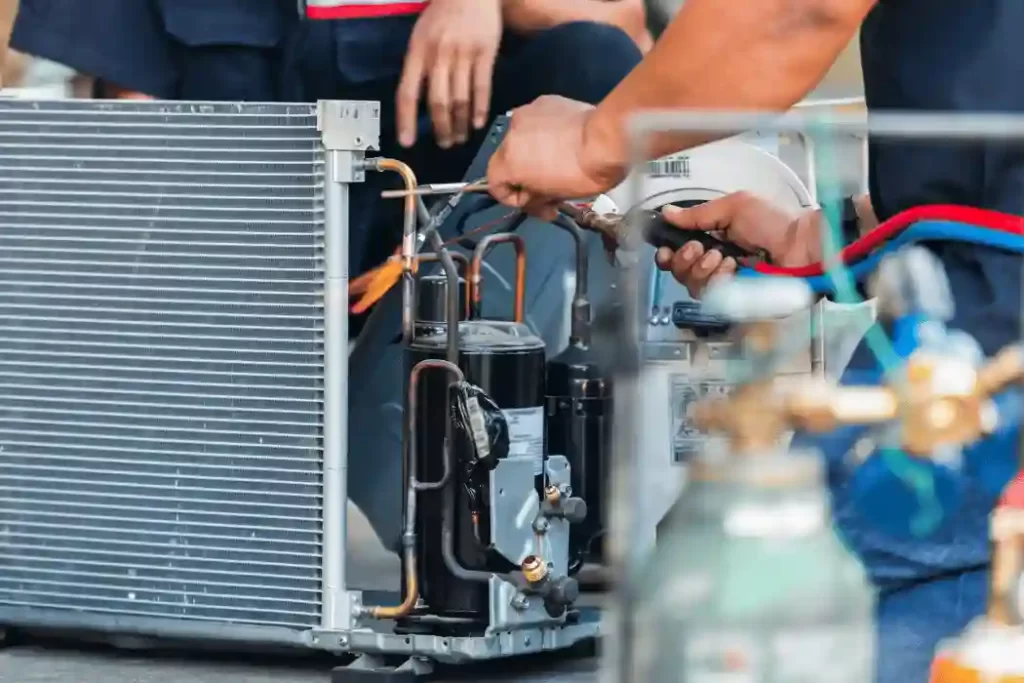When it comes to maintaining a comfortable home environment, having the right HVAC (Heating, Ventilation, and Air Conditioning) system is crucial. Whether you are building a new home or upgrading your existing system, selecting the right HVAC system can significantly impact your energy efficiency, indoor air quality, and overall comfort. In this article, we will provide you with a comprehensive guide on how to choose the right HVAC system for your home.
Understanding Your Home’s Heating and Cooling Needs
Before diving into the specifics of HVAC systems, it is crucial to evaluate your home’s heating and cooling needs. Factors such as the size of your home, insulation levels, and local climate play a significant role in determining the appropriate HVAC system. Assess whether you need both heating and cooling capabilities or if cooling alone is sufficient for your location. Transform your home renovation with state-of-the-art HVAC systems, ensuring optimal comfort and energy efficiency for a truly remarkable living space.

Evaluating System Types: Central HVAC vs. Ductless Systems
Two common types of HVAC systems are central HVAC and ductless systems. Central HVAC systems use a network of ducts to distribute conditioned air throughout the house, while ductless systems provide individual units for each room. Consider the advantages and disadvantages of both types based on your specific requirements.
Determining the Appropriate System Size
Proper sizing of your HVAC system is crucial for optimal performance and energy efficiency. An undersized system will struggle to meet your home’s demands, while an oversized system will lead to frequent cycling and wasted energy. Consult with an HVAC professional to perform a load calculation and determine the appropriate system size for your home.
Considering Energy Efficiency Ratings
Energy efficiency is a vital aspect to consider when choosing an HVAC system. Look for systems with high Seasonal Energy Efficiency Ratio (SEER) ratings for cooling and Annual Fuel Utilization Efficiency (AFUE) ratings for heating. Higher ratings indicate better energy efficiency, which can result in long-term cost savings.
Exploring Additional Features and Technologies
Modern HVAC systems offer various additional features and technologies that can enhance comfort and convenience. These may include programmable thermostats, air purifiers, humidity control, and zone control systems. Evaluate which features align with your needs and preferences.
Assessing Noise Levels
HVAC systems can produce varying levels of noise during operation. If noise is a concern for you, look for units with low decibel ratings. Additionally, consider the location of the system and the distance from bedrooms or other noise-sensitive areas within your home.
Budgeting and Financing Options
Setting a budget for your HVAC system is essential to ensure you make an informed decision. Research the average costs of HVAC systems and consider financing options that may be available to you. Remember to balance upfront costs with long-term energy savings and system reliability.
Seeking Professional Advice
Choosing the right HVAC system can be complex, and it is beneficial to seek advice from HVAC professionals. They can assess your home’s specific needs, recommend suitable options, and provide valuable insights based on their experience and expertise.
Comparing Different Brands and Manufacturers
Not all HVAC systems are created equal, and it’s essential to consider the reputation and reliability of different brands and manufacturers. Research customer reviews, warranties, and the availability of replacement parts and service for each brand you are considering.
Considering Maintenance and Warranty
Regular maintenance is crucial for the longevity and efficiency of your HVAC system. When choosing a system, inquire about maintenance requirements and consider the availability of maintenance services in your area. Additionally, review the warranty details to understand what is covered and for how long.
Installation Considerations
Proper installation is critical to ensure optimal performance of your HVAC system. Choose a reputable and experienced HVAC contractor who can install the system correctly and adhere to industry standards. Improper installation can lead to issues such as inefficient operation and premature system failure.
Understanding Zoning Options
Zoning allows you to divide your home into different areas or zones with separate temperature controls. This can help optimize comfort and energy efficiency by directing conditioned air only where it is needed. Evaluate whether zoning options are necessary for your home.
Exploring Smart Home Integration
Smart home integration is becoming increasingly popular in HVAC systems. With smart thermostats and connectivity features, you can control and monitor your HVAC system remotely, adjust temperature settings automatically, and receive energy usage reports. Determine if smart home integration aligns with your preferences and lifestyle.
Choosing a Reliable Contractor
Selecting a reliable and experienced HVAC contractor is crucial for a successful installation and ongoing service. Look for contractors with proper licensing, insurance, and positive customer reviews. Request quotes from multiple contractors to compare prices and services.
Conclusion
Choosing the right HVAC system for your home requires careful consideration of various factors such as your home’s heating and cooling needs, system types, sizing, energy efficiency, additional features, noise levels, budget, and professional advice. By following this guide and consulting with HVAC professionals, you can make an informed decision that will provide you with comfort, energy efficiency, and long-term satisfaction.

